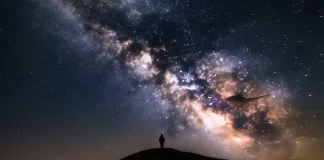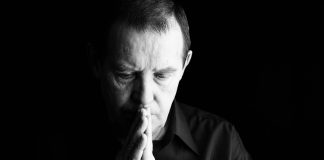I will say it again: Rejoice!
Although we experience more positive than negative elements in life, we are still more intensely and more quickly affected by the unpleasant ones. How can we protect our joy of living despite the problems that beset us?
COVID-19: Could giving up ever be the key to success?
Pray! If not to God, then to a god. Admit that we are defeated, because this is the first step towards victory.
The lens you see me through
Ask any cinematographer what gets them excited, and I guarantee there’s a fair chance they’ll answer with “lenses”. Having spent many years studying film and many more practising it, I can safely say that I now understand why this is—and it’s probably the first response you’d hear from me if you asked me the same question.
Loving till we see an end to sad stories
We carry sad stories with us, and the meaning of these stories often eludes us. What if we discovered that these stories provide unique opportunities to change lives? Cori Salchert discovered, through family tragedy, the resolve and desire to take care of children with terminal illnesses.
The redefinition that conquered the world
For Carl Sagan, renowned astronomer and militant atheist, God's place in the universe was certain: "The cosmos is all that is, or ever was, or ever will be." For Richard Dawkins, exponent of the "new wave" of atheism, true science is necessarily atheistic and materialistic. This paradigm dominates the scientific world today.
Telemedicine. How to get the most out of it
While an increasing number of family physicians and private health networks offer online consultations, it's helpful to better understand telemedicine, the opportunities it creates and its limitations.
The fascinating Gospel of John
Dr Kendra Haloviak-Valentine, Professor of New Testament Studies at La Sierra University in Redlands, California, comes from a family with a tradition of theology and research.
Is faith reasonable?
Science and faith, as important tools in the knowledge process, are often perceived to be in a tense relationship with each other, because of the fundamentally different worldviews that characterize them. The implications for life’s big questions are obvious—and sufficient to rob someone of the comfort of indifference towards such high-stakes conclusions.
About motivation, comfort and procrastination…
I accepted the challenge of writing about motivation thinking it was an easy task, after so many motivational speeches read, listened to, or given.
Why it’s important to have New Year’s resolutions
New Year’s resolutions are beneficial, according to experts at the Sacramento State University, who found that this method is 10 times more effective for successfully meeting goals over a longer period of time than the method chosen by those who decide to change certain aspects of their lives at another time of the year.
How to stick with your New Year’s resolutions
The end of a year is both a period of revising and the most favorable time for drafting wishes for the upcoming year. However, the problem arises when we realise that last year’s resolutions have remained unfulfilled in the absence of a concrete plan.
The risks of discussions about saving the world
Concern for the planet's climate and its ecology has occupied the world's attention for many decades. In the 1980s, the ozone layer depletion caused by chlorofluorocarbons and similar gases was observed, and in 1987, the Montreal Protocol was finalised.
3 features of self-loathing people that can transform them
In sync with our modern culture, many people obsess about self-esteem, not really knowing what it means. Giving up self-loathing seems to them an impossible task. And indeed, how does one reach self-respect? Instead of a straightforward answer, here are some insightful questions to prove that you are worthy and that you can trust yourself.
Is capitalism compatible with the Bible?
Many will admit that they have never thought about this question because they live the status quo without critically evaluating it.
Staring loss in the eye | Lessons from life’s disasters
In the aftermath of Hurricane Harvey, Max Lucado wrote an article summarising the spiritual lessons we can learn from an event that the news described as a "once in a thousand year flood".


























